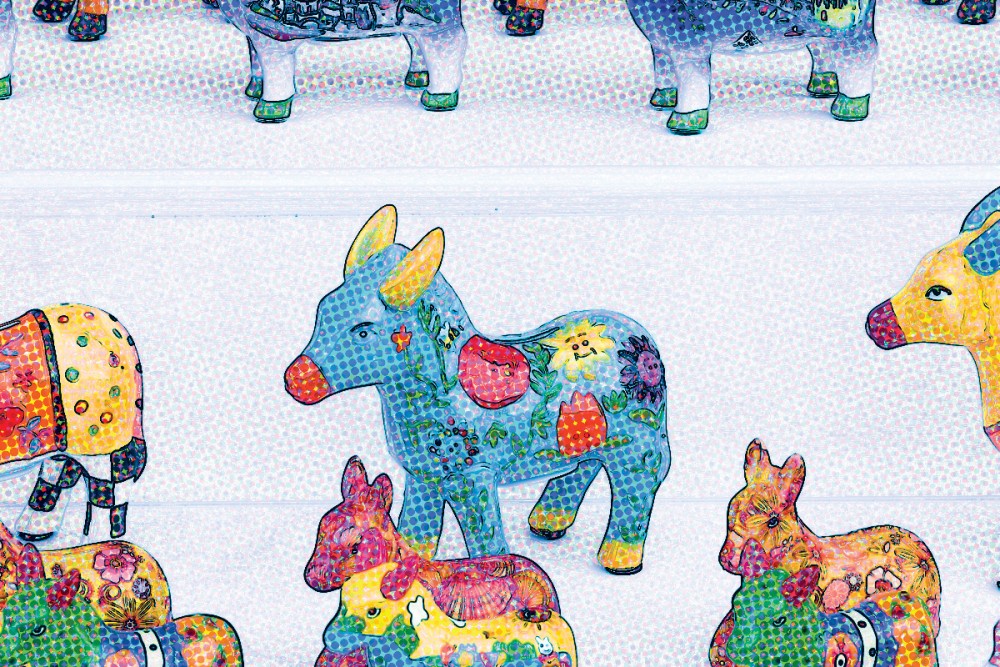Encouraged by donkeys
For almost 40 years they have done their plodding, gracious work on me and my vocation.

Irecently sent a herd of donkeys from Manhattan to Montana. These included a carved wooden donkey from Prague with a barrel on his back, a yellow ceramic donkey from Mexico embellished with flowers and a fringed saddle, a three-legged donkey positioned so that only I knew his secret, a Hopi donkey bearing sacred drawings, a plastic Eeyore, and so many more. Over the years the herd increased to about 30. Until recently it was stationed on a shelf across my office window.
The donkeys had their origin in South Carolina, where I spent a year off from college on one of the Gullah Sea Islands. I learned from the descendants of those enslaved on nearby plantations, who allowed me to listen in as they sat around telling stories. I learned from lawyers and social workers who supported the islanders in their fight for land rights.
Real estate developers, eager to build resorts on the gorgeous islands, were going up to northern cities to knock on the public housing doors of islanders’ distant relations, who were happy to sign away their portion of ownership of a property they’d never heard of for an easy $100 in cash. I got to know one of the social workers, a faithful Baptist hired by Lutherans to do her undercover research and warn the relatives—an ecumenical conspiracy against land theft. I witnessed a congregation shouting in island praise houses and organizing for justice. And then I spent the summer at an inland retreat center.





